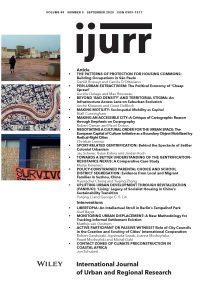This article discusses the reproduction of housing as a commons in São Paulo. It analyzes the occupation of vacant real estate properties and their subsequent transformation into low-income housing in central São Paulo as instances of commoning. It examines the mechanisms through which housing commons are protected, with a particular focus on the mediating role of social movements and property claims. We draw on a combined methodology of participatory action research and semi-structured interviews to explore the dynamics between the commons as a political ideal and its practical application in the urban environment, focusing on the long-term sustainability of housing commons amid capitalist urbanization. Through the lens of two autonomous housing projects, Dandara and Marisa Letícia, we illustrate the transformation of occupied buildings into permanent housing through collective self-management. We also consider the protection of housing as commons through five processes: regularization, restoration, integration, ideation and federation. Our analysis calls for further research into the potential for creating interconnected commons ecosystems.
Details
Written by:
Daniël Bossuyt, Camila D'Ottaviano
Digital Object Identifier (DOI)
https://doi.org/10.1111/1468-2427.13335
About DOI

